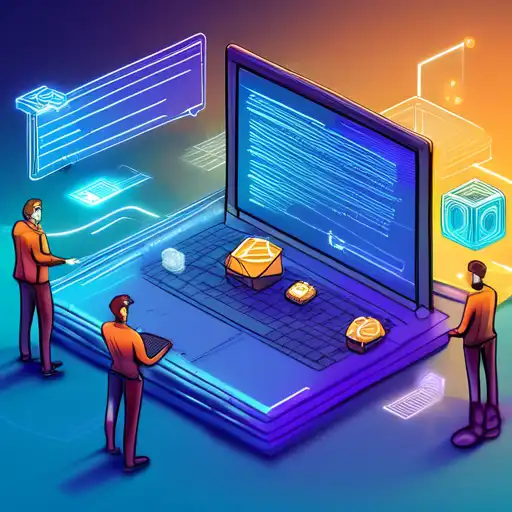Introduction to Smart Contracts
Smart contracts represent a pivotal innovation in blockchain technology, automating agreements without the need for intermediaries. These self-executing contracts with the terms of the agreement directly written into code have revolutionized how we think about trust and transactions in the digital age.
How Smart Contracts Work
At their core, smart contracts operate on blockchain platforms, such as Ethereum, which provide the necessary infrastructure for their execution. When predetermined conditions are met, the contract automatically enforces the terms, ensuring transparency and efficiency.
Benefits of Smart Contracts
- Autonomy: Eliminates the need for intermediaries, giving full control to the parties involved.
- Trust: Encrypted and stored on a blockchain, making them immutable and secure.
- Backup: Every detail is duplicated many times over on the blockchain, ensuring data preservation.
- Speed: Automates tasks that would otherwise require manual processing, saving time.
- Savings: Reduces costs by cutting out middlemen and streamlining processes.
Challenges and Considerations
Despite their advantages, smart contracts are not without challenges. Issues such as coding errors, legal recognition, and scalability must be addressed to fully realize their potential. It's essential for developers and users alike to understand these limitations.
Real-World Applications
From finance to real estate, smart contracts are being applied across various industries to automate processes, reduce fraud, and increase efficiency. Their versatility and security make them a valuable tool in the digital economy.
Future of Smart Contracts
As blockchain technology continues to evolve, so too will the capabilities and applications of smart contracts. With advancements in scalability and interoperability, the future looks bright for this transformative technology.
Understanding smart contracts is essential for anyone looking to navigate the blockchain space effectively. By leveraging their power, businesses and individuals can achieve greater efficiency, security, and trust in their digital transactions.
